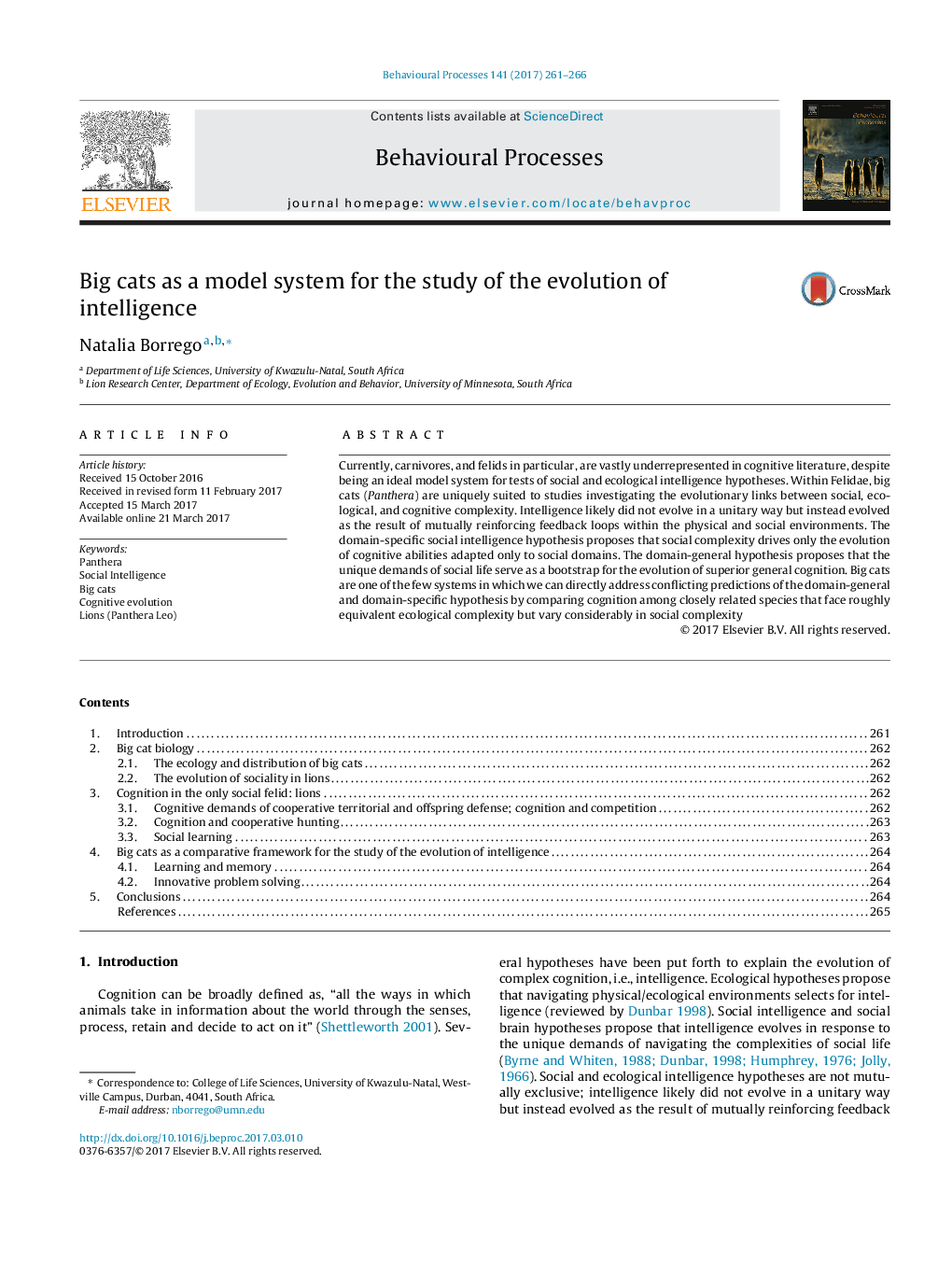| Article ID | Journal | Published Year | Pages | File Type |
|---|---|---|---|---|
| 5539738 | Behavioural Processes | 2017 | 6 Pages |
Abstract
Currently, carnivores, and felids in particular, are vastly underrepresented in cognitive literature, despite being an ideal model system for tests of social and ecological intelligence hypotheses. Within Felidae, big cats (Panthera) are uniquely suited to studies investigating the evolutionary links between social, ecological, and cognitive complexity. Intelligence likely did not evolve in a unitary way but instead evolved as the result of mutually reinforcing feedback loops within the physical and social environments. The domain-specific social intelligence hypothesis proposes that social complexity drives only the evolution of cognitive abilities adapted only to social domains. The domain-general hypothesis proposes that the unique demands of social life serve as a bootstrap for the evolution of superior general cognition. Big cats are one of the few systems in which we can directly address conflicting predictions of the domain-general and domain-specific hypothesis by comparing cognition among closely related species that face roughly equivalent ecological complexity but vary considerably in social complexity
Related Topics
Life Sciences
Agricultural and Biological Sciences
Animal Science and Zoology
Authors
Natalia Borrego,
